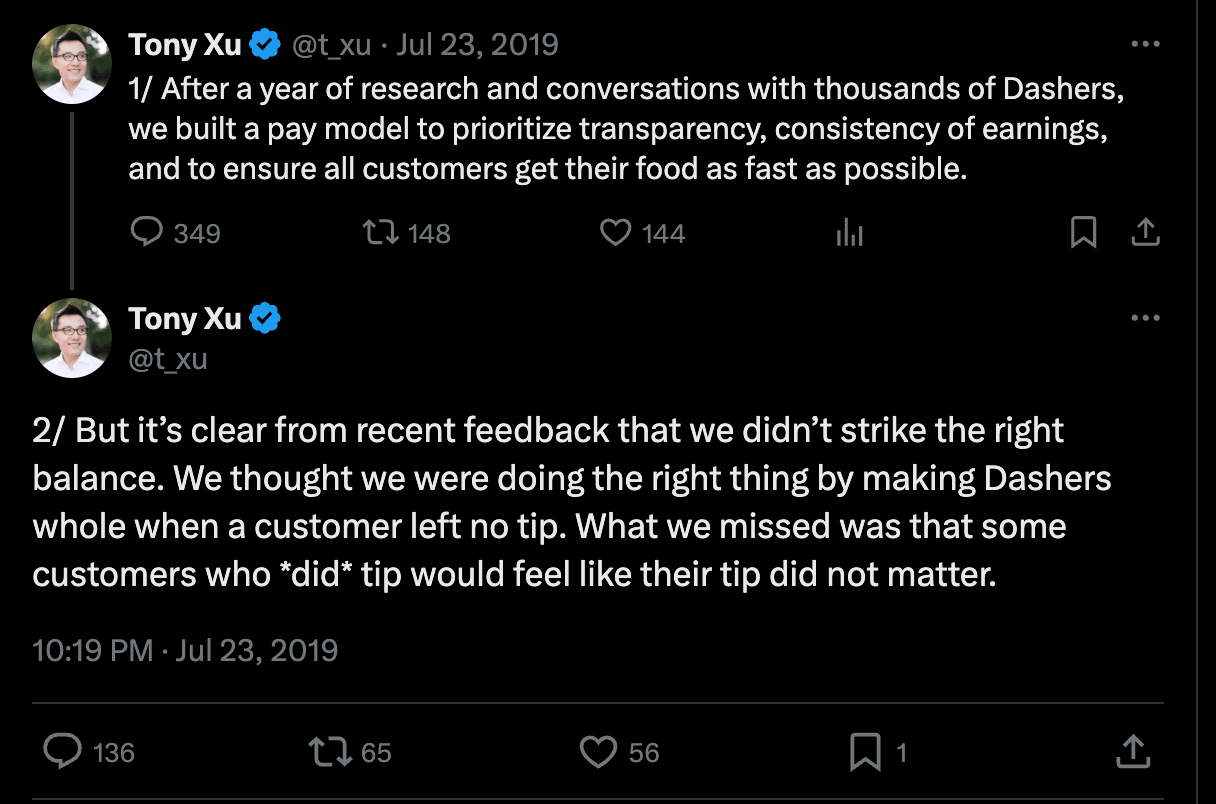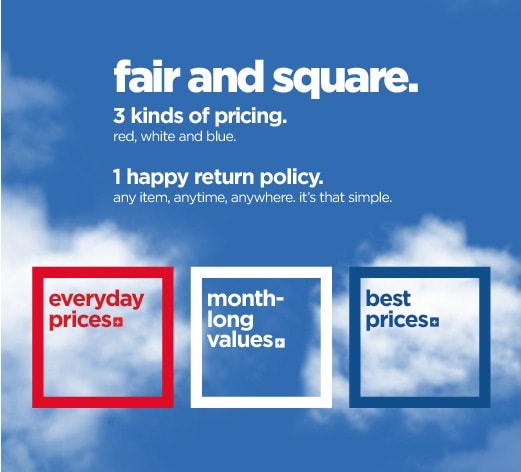There’s a cool concept I’ve been thinking about. I first heard of it when reading Jesse Schell’s book “The Art of Game Design”. (Fun fact: Jesse Schell was my professor’s professor, aka my grand-professor.)
Then I heard of it again in the LessWrong post “Choosing the Zero Point”. Having been exposed to it twice, I now see it everywhere. I’m not sure how to describe it though, so I’ll just throw a bunch of examples at you:
Jesse Schell: the developers of World of Warcraft wanted players to play just a little each day. In the game, you gain “experience points” as you play. So they decided you would get less experience points once you had already been playing for half an hour. Of course, players hated this. But instead of actually changing the system, the developers just reduced the baseline amount of experience points you got, and then said that you got a bonus during the first half hour.
In the words of Chris Remo from the Idle Thumbs podcast, “It’s EXACTLY the same as it was before, except NOW everyone is like ‘Fuck yeah, Blizzard, this is exactly what I want!’”
Intensionally, it feels very different to get a bonus during the first half hour than it does to get penalized beyond the first half hour.
But extensionally, the two systems are the exact same. You get more experience points during the first half hour of each day than during the rest of the time you play.
P.S. the above is from memory and may not be 100% accurate to how it happened IRL.
LessWrong: some people portray eating meat as evil, and not eating meat as the bare minimum to be a decent person. But it may be more persuasive to portray eating meat as neutral, and to portray not eating meat as an insanely awesome opportunity to do a massive amount of good.
Intensionally, they are very different. Finding out that you’ve actually been perpetuating a great evil and must drastically change your behavior and give up something you enjoy to just get back to the baseline, sounds like bad news.
But finding out about an opportunity to change your behavior for massive moral benefits sounds like good news.Extensionally, they are the same. From a utilitarian perspective, there is not an obvious reason why we should prefer one interpretation over the other. All that utilitarianism tells us is that not eating meat is much better than eating meat.
The following are examples of the same phenomenon that I noticed:
How most people imagined Doordash works is: the app pays the driver a base pay per delivery + whatever you tipped. But what they used to do what not exactly that and it caused a bit of drama. What they did instead was, any amount you tipped technically still went to the driver, but they reduced the base pay by the same amount.
Say the base pay was originally $15. If you tipped nothing, the driver would have gotten $15. But if you tipped $5, they would reduce the base pay to $10, then give the driver your tip for $15 total. So the effect is the driver got $15 no matter how much you tip.
This caused a bit of a media controversy. But the Doordash CEO framed it a different way. He said:Intensionally, they are very different. In one framing, Doordash reduces the base pay when you do tip. In the CEO’s framing, Doordash increases the base pay when you don’t tip. I’m not actually sure anyone was convinced by Doordash’s argument haha.
Extensionally of course they are the same. The driver gets $15 no matter what, and if you tip $5 that means $5 more for doordash.
P.S. Doordash has changed their system and supposedly no longer does this.
The above is actually the default behavior of most restaurants. US minimum wage law says all employees must make $7.25/hour. Tipped employees are no exception. But the difference is, the employers of tipped employees are allowed to pay them as little as $2.13/hour as long as they get enough tips to put them above $7.25/hour overall.
In the same way that Doordash’s old system meant that tipping your driver $5 meant nothing for your driver but $5 more for Doordash, the system in use by restaurants means that the first $5/hour of tips for tipped employees means nothing for the employee but is $5/hour extra for the restaurants.But the law is always presented like this: If an “employee does not receive sufficient tips to make up the difference between the direct (or cash) wage payment (which must be at least $2.13 per hour) and the minimum wage”, then the “employer must make up the difference”.
You can read the law as saying those nice employers must give tipped employees a nice little boost when they don’t get enough tips one week to make minimum wage.
However, the law would have had the same effect if it were written the opposite way: employers get to pay tipped employees less if they get enough tips.The above assumes restaurants actually obey the law about paying tipped employees, which many don’t.
Need based student aid also has this dynamic. Colleges set a sky-high tuition, and then after asking you exactly how much your family makes and your zip code etc., they then generously offer the needy a “need-based scholarship” to hopefully reduce the cost of tuition to a level they can afford. And who could possibly be opposed to a need-based scholarship??
They obviously wouldn’t do what I’m about to say, but this system is equivalent to one where they set a very affordable base tuition, and then add a “wealth-based surcharge” to charge their rich students extra money. And if you don’t fill out the form and tell them how much your parents make, you get the maximum possible surcharge. Clearly this doesn’t sound as wholesome, but it is identical to what we have now.This all reminds me of JC Penny’s “Fair and Square” disaster of a pricing strategy. In 2012, their CEO Ron Johnson noticed that they were doing this thing where they take a $25 product, mark it up to $100, then have a balls-to-the-wall 75% off sale where they marked it back down to the original price of $25. RonJon thought this seemed weird and deceptive, and realized that by being honest with customers that $25 was the normal price, they would win goodwill with customers and become known as the only brand that wasn’t trying to rip you off with phony sales.
Of course they quickly went back on this idea (and fired RonJon) when everyone stopped shopping there.Cristiano Ronaldo says “I am not competing with anybody. I hope to compete with myself, to become a better player than I was yesterday”.
I see why the second-best football player would benefit from this mindset, and I think it’s an even more useful mindset for beginners.
Someone trying to learn to sing might set their baseline as “sounding as good as someone on the radio”, and live in a state of perpetual failure until they reach that far-away goal. But someone who sets their baseline to “how good I was yesterday” will always feel like they are going above the baseline whenever they improve.My blog has the same issue I think. You see the title “Sex and Chicago”, and you expect a blog full of raunchy details and cutting observations about the interactions between the sexes. Instead you get extended diatribes about minimum wage law and JC Penny pricing strategies. Even if you would be interested in the diatribes, you’re bound to be disappointed because your expectations have been set too high.
If I renamed it to “Memorizing the Phone Book” or something, you would then be pleasantly surprised that it was more interesting than that.


If you do the math, the problem is that “not eating meat” does not do a massive amount of good in any utility calculation that people provide. If people calculate dollar numbers for how much you would need to donate to offset it, those numbers aren’t that high.
“They obviously wouldn’t do what I’m about to say, but this system is equivalent to one where they set a very affordable base tuition, and then add a “wealth-based surcharge” to charge their rich students extra money. And if you don’t fill out the form and tell them how much your parents make, you get the maximum possible surcharge.”: uh, my uni does just that, actually? They’re government-funded, so tuition used to be a few hundreds of euros per year, but a decade or so ago they decided that now it’s going to be tiered by income, with tuition ranging from €0 to €15k.
I mean, that’s just copying the usual model you described after having previously done something different, but the equivalence between the two is a bit more blatant in that context, right?